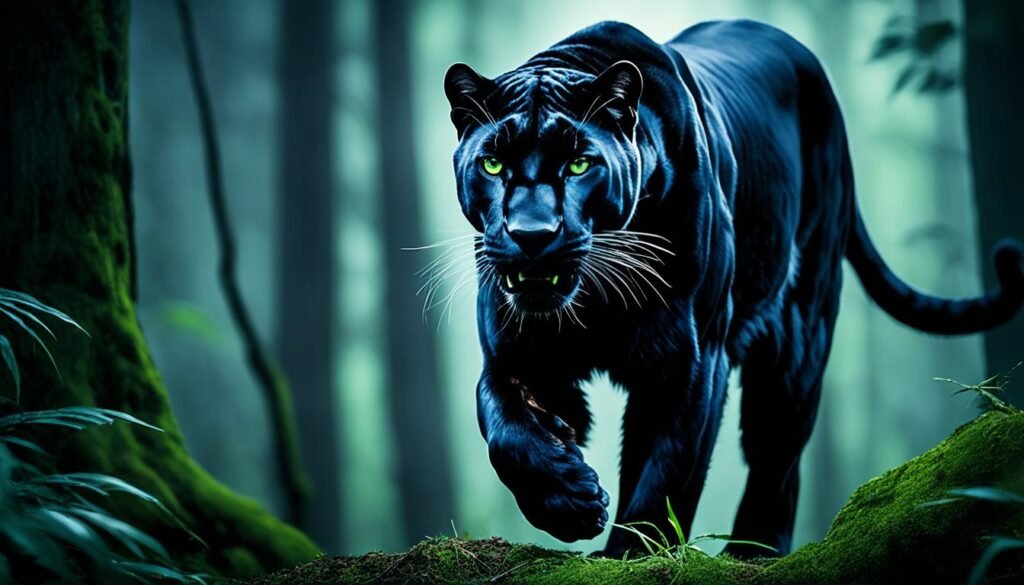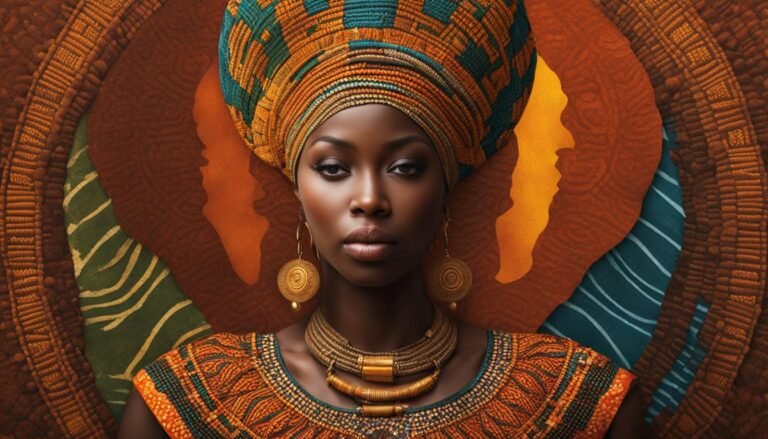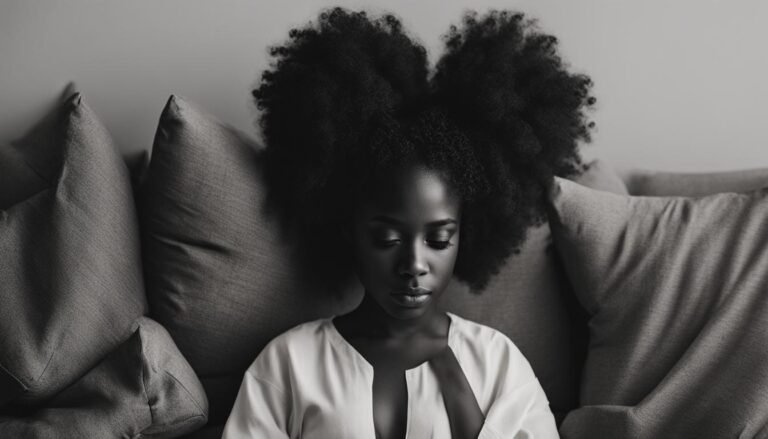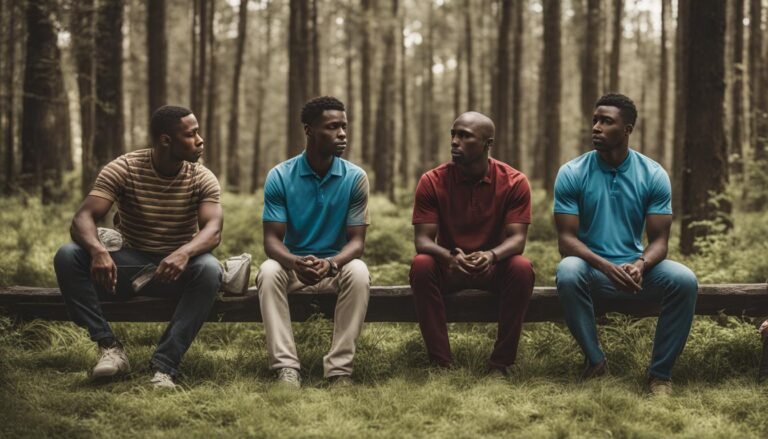Why do I Love Black so Much?
The color black holds a special place in the hearts of many individuals. Despite its association with darkness and negativity, there is a deep affection and fascination for this color. People who have a passion for black find it aesthetically appealing and are drawn to its psychological and symbolic meanings. In this article, we will explore the reasons behind the love for black and the factors that contribute to this admiration.
Key Takeaways:
- Many individuals have a deep affection and fascination for the color black.
- Psychology and personal traits play a role in why people love black.
- Black is associated with power, elegance, and sophistication.
- Societal perceptions of black can vary across different cultures.
- Understanding one’s emotional response to black can provide insights into their personality.
The Psychological Appeal of Black
The color black possesses a profound psychological appeal, rooted in its association with power, elegance, and sophistication.
Black symbolizes authority and intelligence, drawing individuals who admire its strong and confident image. Its timeless and classic aesthetic is widely regarded as attractive, capturing the attention of many. Black evokes a sense of mystery and intrigue, fostering a desire for privacy and secrecy.
Individuals’ personal experiences and cultural associations greatly influence their preference for black. While some may associate black with negative connotations, such as sadness or fear, others find comfort and calmness in its presence. Understanding one’s emotional response to black can shed light on their unique personality and preferences.
In the realm of psychology, black’s symbolism extends beyond its aesthetic qualities. Its representation of power and authority is prominent in many societies, often worn by individuals in influential positions such as executives and professionals. Additionally, black conveys an air of mystery and sophistication, captivating individuals with its allure. These cultural and personal meanings contribute to the deep fascination and universal appeal of the color black.
To further explore the psychological appeal of black, let’s delve into the societal perceptions and various interpretations of its symbolism.
Societal Perceptions of Black
In society, the color black is often associated with negativity and darkness. Throughout history, black has been linked to death, evil, and other negative concepts. Language and expressions frequently use black to convey negative meanings, reinforcing the societal perceptions of this color. However, it is crucial to recognize that these associations can vary across different cultures and contexts.
In some cultures, black holds positive symbolism and is associated with power and prestige. For instance, black is worn by individuals in positions of authority, such as judges and clergy members. In these contexts, black represents wisdom, knowledge, and respect. Additionally, black can be seen as a symbol of mystery and elegance, adding to its allure and intrigue.
In order to fully understand and interpret the symbolism of black, it is essential to consider the cultural and historical context in which it is being perceived. While black may carry negative associations in some societies, it can hold positive connotations in others. Cultural variations in black symbolism highlight the complexity and diversity of human perception and interpretation of color.
It is important to approach societal perceptions of black with an open mind and to recognize that the meaning and symbolism of this color can vary greatly depending on cultural backgrounds and individual experiences.

Cultural Variations in Black Symbolism
| Culture | Black Symbolism |
|---|---|
| Western societies | Death, evil, mystery |
| Asian cultures | Power, authority, elegance |
| African cultures | Power, protection, spirituality |
| Native American traditions | Harmony, wisdom, connection to the Earth |
| Islamic influences | Respect, humility, modesty |
Black in Color Psychology
Color psychology suggests that individuals’ emotional responses to black can be influenced by their personal preferences and cultural influences. While some may perceive black as negative and associated with sadness or fear, others may find it comforting or calming. Cultural variations in color symbolism contribute to the diverse interpretations of black. Understanding one’s own emotional response to black can provide insights into their personality and preferences.
When it comes to color psychology, black often evokes strong emotions and conveys a range of meanings. For some individuals, black may be associated with darkness and negativity, triggering feelings of sadness or fear. This emotional response is a result of personal preferences and past experiences.
On the other hand, many people find solace and comfort in the color black. It is often seen as a symbol of strength and stability. Black can create a sense of grounding and protection, providing a sense of security in uncertain times. It is no wonder that many individuals turn to black when they need a sense of stability and reassurance in their lives.
“Black is not necessarily associated with mourning. It is associated with night, darkness, total mystery with eccentricity, and power. It evokes a sense of potential and possibility.” – Stefano Pilati
This quote from fashion designer Stefano Pilati highlights the diverse interpretations and cultural influences on the color black. While in certain cultures, black may symbolize mourning or grief, it can also represent power, elegance, and mystery. The emotional and symbolic meaning of black is heavily influenced by cultural perceptions and associations.
Color symbolism varies across different cultures and societies. For example, in Western cultures, black is often associated with formality and sophistication, commonly worn at formal events and black tie affairs. It is seen as a symbol of authority and power, represented in black suits and uniforms worn by professionals. On the other hand, in some Eastern cultures, black may symbolize protection and warding off evil spirits.
Understanding the cultural influences on color perception is crucial for interpreting the emotional and symbolic meaning of black. It allows us to appreciate the diverse perspectives and associations that different societies have with this color.
Aesthetic Appeal of Black
Black holds a captivating aesthetic appeal that extends across various industries, including fashion, design, and branding. Renowned for its versatility and timeless allure, black is a color that effortlessly adds sophistication and elegance to any context.
In the realm of fashion, black has become synonymous with refinement and luxury. Its ability to create a sleek and polished appearance makes it a favored choice for formal attire and evening wear. The sleekness of a little black dress or the sharpness of a tailored black suit exudes an air of confidence and style.
In design, black plays a pivotal role in creating visual impact. Its ability to act as a transformative agent allows it to contribute to both minimalist and dramatic aesthetics. Black can be used to add depth and contrast, creating a visually captivating space. Whether it’s a black accent wall, furniture, or accessories, incorporating black elements helps create a sense of sophistication and understated elegance.
Brands recognize the power of black in their logos and marketing materials. It is often employed to evoke a sense of authority, power, and prestige. The simplicity of black combined with its association with excellence and high-quality products can communicate a brand’s values effectively. Many globally recognized brands, such as Chanel, Nike, and Apple, have embraced black as a key element of their branding strategy.
“Black is modest and arrogant at the same time. Black is lazy and easy – but mysterious. But above all, black says this: ‘I don’t bother you – don’t bother me.'”
Yohji Yamamoto
Embracing the aesthetic appeal of black allows individuals and businesses to tap into its timeless elegance and visual impact. By leveraging the versatility of black, whether in fashion, design, or branding, one can create a lasting impression that speaks to a sense of sophistication and style.
The Influence of Black in Design and Fashion
| Industry | Influence of Black |
|---|---|
| Fashion | Symbol of elegance and sophistication |
| Design | Creates a sleek and minimalist look or adds depth and contrast |
| Branding | Projects a sense of power, prestige, and excellence |
Symbolism and Meanings of Black
Black is a color that carries rich symbolism and holds different cultural meanings across various societies. It is often associated with power, authority, and elegance, making it a highly sought-after color in various domains.
In many cultures, black is seen as a symbol of power and authority. It is commonly worn by individuals in positions of leadership or prestige, such as executives, politicians, and professionals. The color black exudes confidence and commands respect, reinforcing the perception of power and authority.
“Black is the color of power and sophistication. It channels a sense of command and control, making a strong statement in any context.”
– Fashion designer Maria Rodriguez
Black also carries an air of mystery and sophistication. It has an inherent elegance that transcends time and trends, making it a timeless color choice. The lustrous allure of black adds a touch of mystique, making it both captivating and intriguing.
From a cultural perspective, black holds different meanings and symbolism. In some cultures, black is associated with mourning and represents a period of grief and somber reflection. Conversely, it can also symbolize protection and ward off negative energies.

| Symbolism of Black | Cultural Meanings of Black |
|---|---|
| Power and Authority | In many societies, black is worn by individuals in positions of power, such as executives and professionals. |
| Mystery and Intrigue | Black carries an air of elegance and sophistication that adds a touch of mystique to any context. |
| Mourning and Reflection | In some cultures, black is associated with mourning and represents a period of grief and somber reflection. |
| Protection and Warding Off Negativity | Black is believed to have protective qualities and can be used to ward off negative energies. |
The symbolism and cultural meanings of black contribute to its enduring appeal and hold a significant place in various aspects of life, including fashion, art, and design.
Conclusion
The love for black is a fascinating phenomenon that stems from a combination of personal preferences, cultural influences, and individual experiences. By understanding the psychological and aesthetic appeal of black, we can gain insights into the unique personality and style of those who gravitate towards this color.
Black holds a powerful symbolism, representing not only power, elegance, and sophistication but also mystery and intrigue. It is a color that evokes emotions and creates a sense of authority. However, it is essential to recognize that color preferences are subjective and can vary significantly among individuals.
Embracing diverse color preferences is vital for fostering an inclusive and accepting society. It allows us to appreciate the beauty and uniqueness of each person’s personal associations and preferences with color, including the deep affinity for black. By valuing and embracing diverse color choices, we can create a world that celebrates individuality and promotes understanding.
FAQ
Why do some people love the color black so much?
The love for the color black can be attributed to various reasons, including its psychological appeal, aesthetic appeal, and cultural associations. Black is often seen as a symbol of power, elegance, and sophistication, which can attract individuals who appreciate these qualities. Additionally, black’s ability to create a timeless and classic look in fashion and design further contributes to its allure.
What is the psychological appeal of black?
The color black has a strong psychological appeal due to its association with power, elegance, and sophistication. It signifies authority and intelligence, attracting individuals who are drawn to its strong and confident image. Black can also evoke feelings of mystery and intrigue, as well as a desire for privacy and secrecy. Personal experiences and cultural associations can influence one’s preference for black.
How is black perceived in society?
In society, black is often associated with negativity and darkness. It has been historically linked to death, evil, and other negative concepts, as reflected in language and expressions. However, these associations can vary across different cultures. In some cultures, black is seen as a symbol of power and prestige, while in others it may have positive connotations. It is important to consider the cultural and historical context when interpreting the symbolism of black.
What role does black play in color psychology?
Color psychology suggests that individuals’ emotional responses to black can be influenced by their personal preferences and cultural influences. While some may perceive black as negative and associated with sadness or fear, others may find it comforting or calming. Cultural variations in color symbolism contribute to the diverse interpretations of black. Understanding one’s own emotional response to black can provide insights into their personality and preferences.
What is the aesthetic appeal of black?
Black has a strong aesthetic appeal that transcends different industries, including fashion, design, and branding. It is often considered a versatile and timeless color that can be used in various contexts. In fashion, black is associated with elegance and sophistication, making it a popular choice for formal attire. In design, black can create a sleek and minimalist look or add depth and contrast to a space. Brands often use black in their logos and marketing materials to convey a sense of power and prestige.
What are the symbolism and meanings associated with black?
Black is rich in symbolism and carries different meanings across various cultures. It is often associated with power, authority, and elegance. In many societies, black is worn by individuals in positions of power, such as executives and professionals. It is also seen as a symbol of mystery and sophistication. These cultural meanings contribute to the allure and fascination with the color black.
Why is it important to understand the love for black and embrace diverse color preferences?
The love for black is a complex interplay of personal preferences, cultural influences, and individual experiences. Understanding the psychological and aesthetic appeal of black can provide insights into one’s personality and style. By embracing diverse color preferences, we foster a more inclusive and accepting society, recognizing that individual reactions to color vary and that diversity in preferences enhances our collective experiences.






